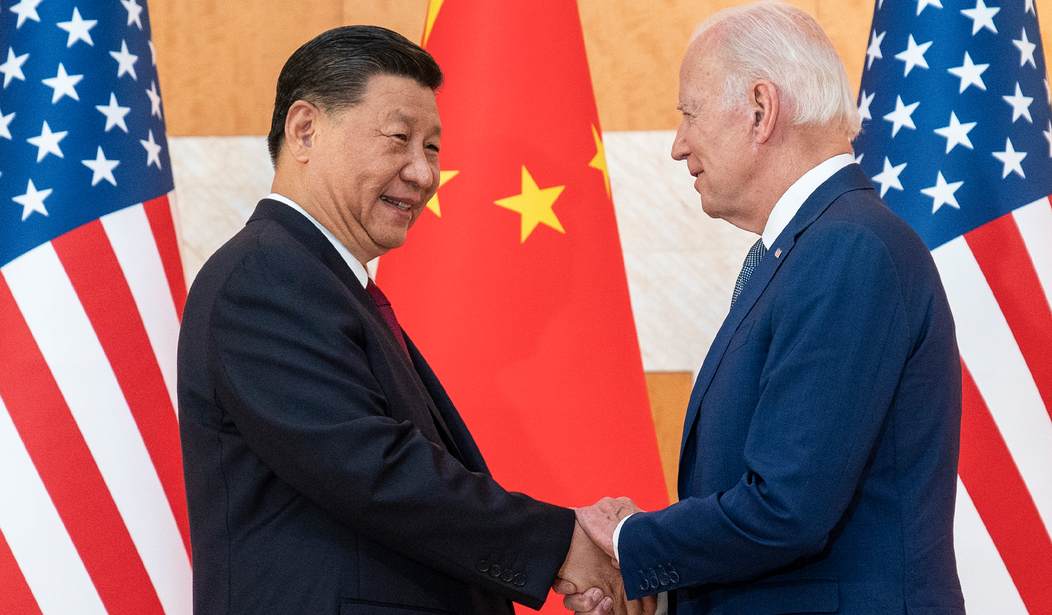China looms large over the global scene, casting a long shadow beyond its military forces stationed close by Taiwan. Barely 100 miles separates the Chinese mainland from the industrious island nation (home to computer chip makers) and the US ally democratically governed as the Republic of China by various successors to the Chinese Nationalists.
The Nationalists relocated on Taiwan after being pushed off the Asia mainland by Mao-led Communists following World War 2. Taiwan, formerly governed by the late Kuomintang leader Chiang Kai-shek, has been land coveted by the Chinese Communist Party (CCP) leaders in Beijing ever since.
CCP Chairman Xi Jinping sees the 100 miles of the Taiwan Strait as an annoying obstacle to his designs to dominate the world auto industry, through an expanding campaign of marketing Chinese-made electric vehicles and essential components. He lacks the superior chip-making capabilities of Taiwan.
China's decision to move full-scale into the manufacture and distribution of electric vehicles (EVs) and their components may also explain why it is commissioning several new massive coal-fired power plants annually to meet its anticipated rapidly growing demand for electrical power, while ignoring any implications for carbon dioxide emissions and putative climate change that shape our own domestic energy policies.
Meanwhile, US policy makers, serving in what might appear as a witless administration, continue mired down in the business of promoting highly subsidized forms of energy—like wind and solar—in the naïve belief that renewables will be able to shoulder the major burden of generating electricity here in the United States. Conversely, both our domestic coal-fired and nuclear powered plants are rapidly being retired from service.
Recommended
These sure-fire, self-defeating policies will require an increasing dependence on natural gas to backup and supplement load demand on the electrical grids when very often the sun does not shine and the wind doesn't blow. Yet, even our abundant natural gas is being numbered among the forms of fossil fuels that are destined for extinction according to the Administration’s endangered energy list.
The technical and economic complications that arise from shortfalls of reliable electrical power and an untenable demand being increasingly placed on the national grids by EVs numbering in the millions will introduce our whole nation to the specter of recurring black-outs, and well ahead of Biden’s pending 2035 federal deadline for the shift to an all-electric vehicle fleet.
Thus, the implementation of an energy-dependent economy heavily reliant on renewables is fraught with complications fully unappreciated by our government leaders and technocrats beholden to the ideology of the vast woke culture of under-informed supporters. Only in fairy tales, can a silk purse be made from a sow’s ear.
Nor can we expect our US domestic industry to produce the critical materials needed to build EVs and the implied, necessary renewable generating facilities and grid systems.
China, on the other hand, has amassed for itself a near monopoly on the supply of many strategic metals, either within its own borders or through binding contracts with countries in Africa, Asia and South America that do possess the essential mineral reserves.
Certain among, but not all, the supply of these needed materials are known to exist in North America, but environmental regulations to protect lands and waters prevent their ready economic development. By default, US manufacturers of EVs will have to depend on Chinese-controlled supplies for lithium, cobalt, nickel, graphite and an assortment of rare-earth metals before being able to assemble components needed to construct batteries, motors and essential control systems for the high-tech EVs.
The celebrated visits of the elder Biden and son to China a few years ago raise questions about why Chinese leaders would be interested in entertaining them as guests, if it were not for the prospects of gaining access to decision makers in a future administration. The final pages of this chapter of intrigue have yet to be written.
But witless advocates for the radical transition from the internal combustion engine to electric battery/motor combinations, as the prime movers in the transportation sector of the future have themselves to answer to for the devastation being visited on the Third World nations, where the critical materials are being mined and processed. It is estimated that the production of the lithium required by a single battery pack for a typical Model S Tesla consumes more than a half million gallons of fresh water. Mining and refinement of the other metals also entail a severe environmental cost absent the controls required in the United States and other advanced countries.
The resulting polluted water left behind in holding ponds or allowed to escape into streams will contaminate nearby drinking water and irrigation supplies. Recall the fate of the Gold-King mine in southwest Colorado, when an EPA contractor breached a berm holding back cyanide contaminated water that flooded into the Animas River killing fish and fouling the drinking water supply for the Navaho reservation downstream.
The cobalt that is extensively mined from small open pit workings in the Democratic Republic of the Congo, is in the main, produced by back-breaking labor using children who work at what here would be considered slave labor and for undercompensated wages in the United States.
“Out of sight, out of mind” is an apt way of saying what applies to all who champion the rapid transition to electric vehicles that cannot be produced economically without deliberately skirting environmental and labor laws intended to protect the vulnerable.
It might seem Chairman Xi is on the verge of playing the Biden Administration into a check-mate without the Chinese having to fire a single shot across the Taiwan Strait.
William D. Balgord, Ph.D. (geochemistry) heads Environmental & Resources Technology, Inc. in Middleton, WI.

























Join the conversation as a VIP Member